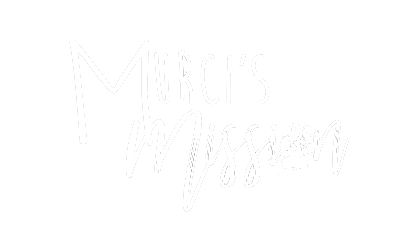How to Potty Train Your Dog: Puppy & Adult House Training Made Easy
Whether you’re working with a brand-new puppy or an adult rescue who’s never been properly house trained, the goal is the same: set your dog up for success with patience, consistency, and a little help from your routine.
Potty training can feel frustrating at times, but it’s one of the first ways you and your dog build communication and trust. This guide will walk you through the basics of helping any age dog learn where to go—and how to make it easier on both of you.
Potty Training for Puppies
Puppies are like little sponges—they’re learning everything for the first time, and that includes where (and when) to potty. Your job is to teach them the routine with patience, predictability, and plenty of rewards.
Predict, Prevent, Praise
Predict: Puppies, especially those under 12 weeks old, need to go out very frequently. At 10 weeks, they may need to potty every hour during the day and every 3–4 hours overnight. As they grow and their bladder strengthens, you can gradually stretch out that time. Be on the lookout for signs like sniffing, circling, or wandering off—these often mean they need to go.
Prevent: Use crates, baby gates, or keep them leashed near you indoors when you can’t supervise. Preventing accidents helps build good habits faster. For male puppies, belly bands can also be a helpful management tool—they’re not a substitute for training, but they can keep small accidents contained and make you more aware of when your pup may need to go.
Praise: When your pup goes potty outside, offer warm verbal praise and a treat right away. Timing matters—the reward should happen immediately after they finish so they associate it with the behavior. Over time, you can phase out treats, but always continue to offer encouraging words and affection to reinforce the habit.
Praise: When your pup goes potty outside, offer warm verbal praise and a treat right away. Timing matters—the reward should happen immediately after they finish so they associate it with the behavior. Over time, you can phase out treats, but always continue to offer encouraging words and affection to reinforce the habit.
Build a Communication Habit
Try bell training: Hang a bell near the door and ring it every time you take your puppy outside. Eventually, they’ll learn to ring it themselves when they need to go.
Some dogs prefer to communicate in other ways—like sitting by the door, staring at you, or scratching at the door. Watch for your pup’s personal signal and respond consistently.
Potty Training for Adult Dogs
Adult dogs may already have habits—good or bad. Some may never have been trained at all. The good news? They can learn! But you’ll want to approach it with the same patience and structure you would with a puppy.
Step 2: Use a Consistent Routine
Dogs thrive on structure. Create a schedule that includes:
Wake-up potty breaks
Mealtime potty breaks
Post-play potty breaks
Bedtime potty breaks
Feeding on a consistent schedule helps, too—it makes potty timing more predictable.
Step 3: Clean Up Accidents Properly
Accidents happen. Don’t punish—just clean thoroughly with an enzymatic cleaner (not just soap!) to remove any lingering scent that might encourage repeat behavior.
Step 4: Understand Regression and Setbacks
Even dogs that seem trained may have accidents when:
Adjusting to a new home
Experiencing stress or illness
Their schedule gets disrupted
Go back to basics if needed: more frequent breaks, smaller spaces, and higher supervision.
Step 5: Troubleshooting Older Dogs
Adult dogs with no prior potty training need the same structure and supervision as a puppy. Don’t assume they “should know better”—instead, give them clear, consistent guidance and celebrate every success.
For dogs with prior bad habits (e.g., going indoors), crate training and tight routines can really help reset expectations.
Step 6: Know When to Ask for Help
If your dog consistently struggles despite your best efforts, it may be time to talk with your vet or a professional trainer. Sometimes there are medical or behavioral factors at play that need a little extra support.
Adoptable Spotlight: Meet Florida Man (aka Flori)!
Florida Man, lovingly known as Flori, is a quirky little Pomeranian with a soft spot for cozy routines and a gentle pace of life. Weighing in at just 7 pounds, he might be small—but his personality is delightfully large.
Born around 04/22/2018, Flori joined Murci’s Mission after becoming overwhelmed by the shelter environment at SCRAPS. Since then, he’s shown us that what he really wants is a calm home where he can decompress, be himself, and enjoy quiet companionship.
Flori is kennel trained, leash trained, and fully house trained. While he gets nervous in chaotic or high-traffic settings, he’s happy and relaxed in a home environment with mellow people and pets. He’s friendly with calm dogs and cats, and he’d do best with respectful older kids (10+). He just wants to be treated gently and given a little space when he needs it.
If you're looking for a laid-back, low-maintenance sidekick who’s already got the house training down—Flori may be your guy.
Interested? Start the application process now!
And if he’s already found his forever home, please reach out to us—we’d be happy to play matchmaker and help you find the right furbaby for your home!


